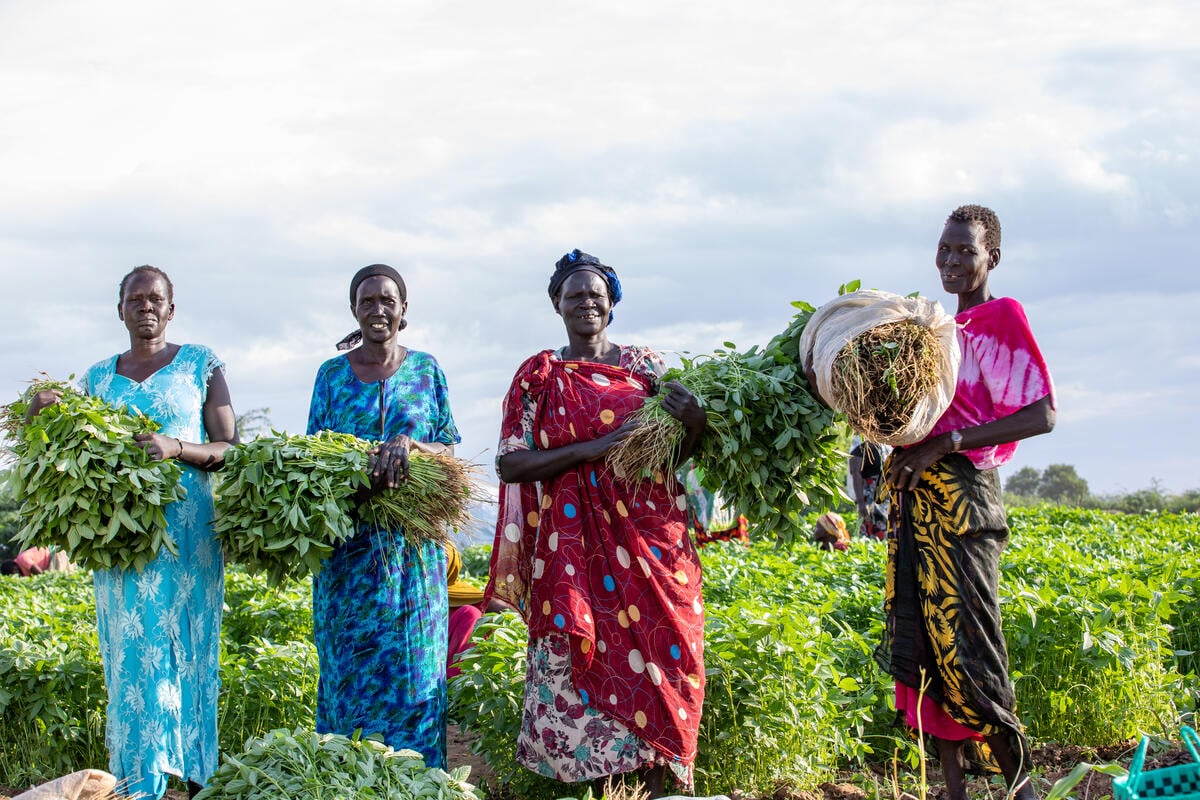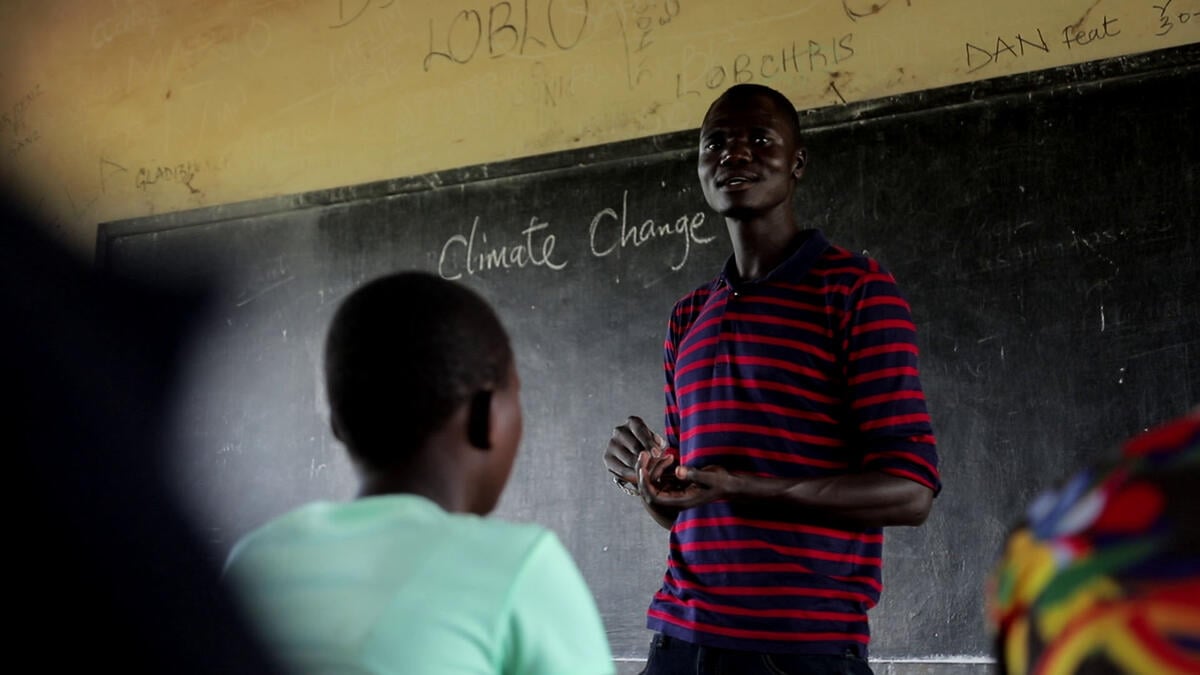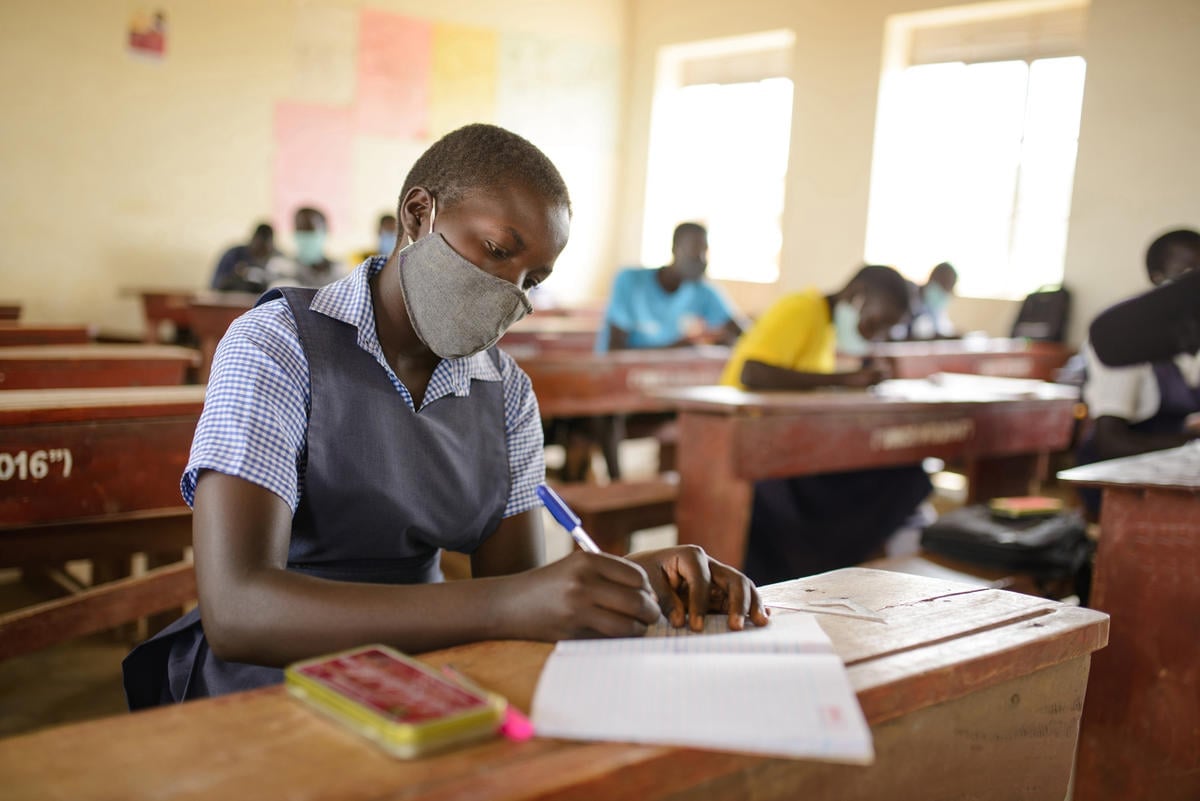Final move to start soon for displaced refugees in Uganda
Final move to start soon for displaced refugees in Uganda

KAMPALA, Uganda, August 16 (UNHCR) - More than 20,000 Sudanese refugees who fled a rebel attack in northern Uganda could be relocated to a permanent new camp in western Uganda as soon as next week as the UN refugee agency steps up efforts to move them to safety.
UNHCR is sending four international emergency staff members to Uganda to supervise the final phase of relocating refugees who survived the August 5 rebel attack on Achol-Pii camp in northern Uganda.
The first phase of the relocation saw some 17,000 displaced refugees trekking overnight from Rachkoko, near Achol-Pii, to Lira, where thousands more had gathered. The second phase involved moving them by truck from Lira to Kiryondongo in Masindi district, central Uganda.
At Kiryondongo, the new arrivals received domestic items and blankets at a makeshift reception centre. A registration, jointly organised by UNHCR and the World Food Programme, is underway to ascertain the exact number of refugees in Kiryondongo and possibly single out internally displaced persons who may have fled the attack together with the refugees.
UNHCR and partner agencies have dug three boreholes and 120 latrines, and established two temporary health centres at Kiryondongo.
The third and final phase of relocation, scheduled to start next week, will involve transferring the estimated 20,000 refugees from Kiryondongo to Kyangwali, by the shores of Lake Albert, in Hoima district.
UNHCR staff are organising a fleet of 10 UNHCR/IOM (International Organization for Migration) trucks and 50 hired trucks. With one trip per day carrying 60 passengers per truck each time, the transfer is expected to be completed within six days. The six-hour journey will include a stopover after Hoima, the district capital. Refugees will receive food and water at the stopover, which could also accommodate them overnight should the trucks break down.
Preparations in Kyangwali are going ahead swiftly. Four reception centres are being set up. The emergency team is surveying land and demarcating plots for shelter and farming.
Blankets and domestic items enough for 4,500 families have arrived in Uganda from UNHCR's regional stock in Tanzania and are now on their way to Kyangwali.
The UN refugee agency's office in Kitgum, which had essentially overseen the activities in the now-empty Achol-Pii camp, will be officially closed next week. Another field office will be opened in Hoima to cover the co-ordination and monitoring of refugee programmes in Kyangwali and Kiryondongo.
To cope with the new emergency operation, UNHCR estimates that it needs $1.5 million for emergency support, relocation and basic services until the end of the year.
This latest development has placed an additional strain on the agency's Uganda budget, which is already severely under-funded. From a total budget of $16 million, UNHCR had only received $5 million by August 12 (including $3 million from the United States and $1.8 million from Japan). The average cost of setting up a new camp for 20,000 refugees is $2.5 million. The agency is appealing to donors for urgent funds.









